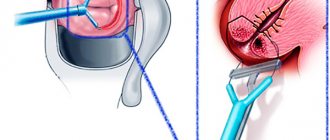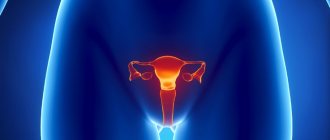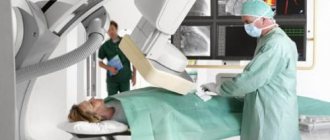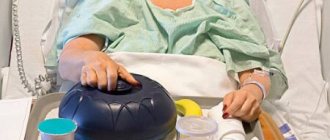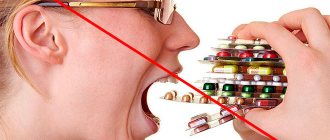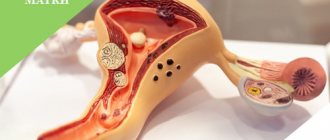When a woman is diagnosed with such a dangerous and serious pathology as cervical cancer, her lifestyle completely changes. Experts say that well-chosen products in combination with natural remedies help speed up recovery with such a complex diagnosis. A balanced diet for cervical cancer helps to increase the effectiveness of therapy and even slow down the development of the pathological process.
It has been proven that one of the provoking factors in the occurrence of cervical cancer is considered to be poor nutrition, that is, the consumption of foods that cause various metabolic disorders in the body. It is for this reason that an important place in the life of a patient with cervical oncology should be occupied by proper nutrition, which involves drawing up a specific diet.
Basic principles of nutrition for malignant tumors
The diet for cervical cancer suggests taking vegetables, berries and fruits that were grown in ecologically clean areas without the use of various chemical additives as the basis of the diet. Medical studies have shown that in the fight against the disease and to prevent it, you need to eat 4-5 servings of plant foods every day, which should be unprocessed, that is, fresh. Priority should be given to fruits with bright colors and leafy greens, as they can inhibit the development of tumor processes.
The raw materials must be taken in equal quantities and brew a spoonful of the finished mixture in a glass of boiling water and leave for an hour and a half. After this, the infusion must be filtered and taken half a spoon twice a day, two hours after a meal. You need to take this drug for one year.
The diet for uterine cancer is accessible, simple and not at all new. The basis of the diet should be plants grown without chemical additives in ecologically clean areas, which have cancer-protective properties that are known to everyone since childhood. This:
- garlic, onion, asparagus;
- legumes (peas, beans);
- cabbage, broccoli, radish;
- pumpkin seeds and nuts;
- tomatoes, carrots, beets, potatoes;
- fruits, berries, citrus fruits;
- dill and parsley.
Doctors say that both in the process of fighting the disease and for its prevention, it is necessary to consume at least 5 servings of fresh, unprocessed plant food every day.
Proper nutrition for invasive cervical cancer also involves including fish rich in fatty acids that inhibit tumor development. It is advisable to use meat products not too often and of low-fat varieties. It is necessary to have milk, fermented milk products, and hard cheese in the diet. Sprouted grains, a variety of cereals, muesli, vermicelli, and natural honey will be very beneficial for health. Among drinks, it is advisable to give preference to freshly brewed green tea, natural mineral water and juices.
When preparing dishes, it is recommended to boil, bake or steam food. Food must be taken in small portions several times a day.
In the later stages of this cancer or during chemotherapy, patients may experience a decrease in appetite and a decrease in body weight, which is a sure sign of exhaustion of the body. At this time, the diet should contain all the nutrients necessary for normal life. However, you shouldn’t go to extremes by eating high-calorie, fatty foods. Easily digestible, low-fat foods will bring much greater benefit at this time.
Useful tips
For nausea (especially in the morning, without getting out of bed), eat several slices of toast, bread or biscuits. To eliminate irritating odors (food, household, cosmetic), ventilate the room more often. To increase the body's antioxidant protection, add garlic, onions and fresh herbs to food (to improve appetite). When the mucous lining of the digestive tract is inflamed, it is important to avoid overly sweet, bitter and sour foods. To reduce the irritating effect on the digestive tract, fruit, vegetable and berry juices are diluted half with clean water, or jelly is prepared
Along with this, limit the intake of foods that cause increased secretion of gastric secretions. If there is difficulty swallowing or chewing, preference is given to soft foods: soups, boiled porridges, grated vegetables, chopped fruits and berries. If necessary, use baby food. In case of diarrhea, limit the intake of fresh fruits, vegetables, and salads, which cause a laxative effect. At the same time, strengthening products are introduced into the daily menu: unsweetened crackers, bread, potatoes, cottage cheese, flaxseed, rice. To reduce bloating, use decoctions of dill, fennel, and chamomile. To stimulate the evacuation function of the intestines, the patient’s diet is enriched with fiber (fruits, vegetables, herbs, berries, cereals, seeds, nuts). Along with this, to eliminate constipation, drink 700 - 900 milliliters of pure filtered water before breakfast (within 1.5 hours). If salivation is impaired (as a result of radiation therapy), preference is given to pureed and liquid foods (herbal and fermented milk drinks, soft chopped vegetables, slimy porridges). In addition, chewing gum, sour fruits or candies are used to enhance the secretion of the salivary glands.
Vegetables against cancer
If you have cancer, vegetables should be consumed with every meal. The daily norm is at least 500 g. Any vegetables are necessary, but there are a number of especially useful ones in the event of a cancerous tumor:
- Broccoli is an irreplaceable source of valuable substances. This vegetable is especially useful for gynecological diseases. Contains a huge amount of vitamins (C, E, A) and microelements (iron, magnesium, phosphorus, potassium, calcium, sodium, iodine). Nutrition for cervical cancer includes other types of cabbage: cauliflower, cabbage, Brussels sprouts. Use them as a side dish or in salads.
- Tomatoes are included in the menu of cancer patients mainly due to their lycopene content. This is a substance that prevents the process of gene mutation and protects healthy cells from destruction. Our bodies do not produce lycopene, which is why it is important to get it through food.
- Asparagus contains polysaccharides that scientists say fight tumors. It is rich in choline, biotin and folic acid, which maintain optimal blood sugar levels. Flavonoids in asparagus have anti-cancer and anti-inflammatory properties.
- Pumpkin improves metabolism, improves immunity, and kills cancer cells. Contains vitamins B and C, carotene, iron, phosphorus, potassium and many other essential microelements. But people with stomach diseases should limit their consumption of this vegetable.
- Carrots are included in the menu of almost all cancer patients. Beta-carotene, which is one of its main elements, is able to inhibit the development of “bad” cells. There are real stories in which people were cured of early stage cancer by drinking several glasses of freshly squeezed carrot juice every day.
- Beet. There are known cases of people recovering from cancer who ate beets daily. The special substances contained in it have anti-cancer properties. They are called anthocyanins. Experts recommend drinking about 500-600 ml of juice per day every day. Before drinking, the juice must stand in the refrigerator or on the window for at least 2 hours. When freshly squeezed, it causes nausea, vomiting, decreased blood pressure and a number of other side symptoms.
- Radish. Research has shown that this vegetable has anti-cancer effects. But in order for these properties to reveal themselves, the radishes must lie in the fresh air. Therefore, you need to use it like this: grate it and let it brew for about half an hour.
- Greens: spinach, parsley, watercress, etc. It is better to eat them unprocessed, so they will retain maximum vitamins. Greens can be added to salads, main dishes or in vegetable and fruit smoothies.
Fruits will also help to cope with the manifestations of the disease and alleviate the condition. Experts advise using:
- Apricot. Anti-cancer properties are attributed to apricot kernels. But there are both supporters and ardent opponents of this theory. The fruit itself has a large amount of vitamins and microelements: calcium, iron, magnesium, potassium, vitamins A, E, C, B1, B2, B6, B9.
- Pomegranate. This fruit has been scientifically proven to stop further growth of cancer cells. To achieve the effect you need to drink 3 cups of juice per day. You can take supplements that contain the substance genistein together. You can eat soy, because... it also contains genistein.
- Grapefruit contains the substance lycopene, which helps fight tumors. This fruit contains slightly less of it than tomatoes. But grapefruit is not inferior to the latter in terms of health value. In addition to lycopene, it contains a large amount of vitamin C.
- Berries: raspberries, blueberries, blackberries. They contain anthocyanins - substances that fight cancer cells. In addition, they are rich in antioxidants and ellagic acid. When added to the diet, they can help even with stage 2 cervical cancer, and not just at the onset of the disease.
Organization of treatment in Germany
Cervical cancer is treated at any stage of the oncological process. Another thing is that the goals of therapeutic intervention may be different.
They are defined:
- Stage of the oncological process
- Available methods of therapeutic intervention (financial capabilities of the patient, technical and personnel potential of the medical institution)
- The age of the patient, her state of health
- The need to preserve fertility
The goals of therapy may be the following:
- Complete cure. Cervical cancer is curable only at stage 1. After radical treatment, high disease-free survival is observed.
- Increased life expectancy. Combination treatment is used. After this, there is a high probability of relapse. However, the patient’s life expectancy increases by several years, which makes the therapeutic effect justified.
- Improving quality of life. If increasing life expectancy is not possible, palliative treatment methods are used. They are aimed at eliminating or reducing the main symptoms of the oncological process - usually those caused by the mechanical pressure of the tumor on surrounding tissues.
Three main groups of methods are used in the treatment of cervical cancer:
- Surgery
- Irradiation
- Chemotherapy
For cervical cancer, treatment is carried out using combinations of these methods. The scheme depends on the prevalence of the oncological process.
In turn, the stage is determined:
- Depth of cancer invasion (how much the tumor has enlarged and how much it is growing into surrounding tissues)
- The presence of immediate and distant metastases
Stage 4B
Sometimes alternative medicine comes to the aid of patients. For cervical cancer, treatment with folk remedies is not prohibited if a woman:
- Uses it in addition to, and not instead of, primary treatment
- It does not negatively affect health
- The plants taken do not contain anticoagulants (do not thin the blood), because in this case the risk of bleeding increases
For cervical cancer, treatment with folk remedies is possible to achieve the following goals:
- Psychotherapeutic effect in case of unresectable tumor. The principle “something needs to be done” is used, which improves the psycho-emotional state of the patient. But this only inspires false optimism regarding the results of using plants or foods for medicinal purposes.
- Relief of symptoms. Many plants have an antispasmodic or analgesic effect. However, in the later stages of cancer, when narcotic analgesics are used, symptomatic treatment of cervical cancer with traditional methods is ineffective.
Now you know whether cervical cancer can be cured without surgery. Gymnastics with a ball, foods, herbs, bee products - all this may help reduce the symptoms of the disease for a while and improve the psycho-emotional profile of the patient. However, it has no real effect on the course of the disease.
DETAILS: Nutrition for prostate cancer - All about oncology
Therefore, before treating cervical cancer with folk remedies, you need to ask yourself the question: have the means of official medicine been completely exhausted? With stage 4 cancer, when doctors can do nothing more, the use of folk remedies for cervical cancer is completely justified. In other cases, you should prefer scientific medicine.
Very often, women travel to Germany to undergo treatment for cervical cancer in the best European clinics. But many do not receive quality treatment only because they do not know how to organize a trip, or the organization takes too much time and the disease progresses, moving to the next stage.
It is better not to delay the start of treatment. Contact Booking Health. We will help organize your trip to Germany as quickly as possible. We will take care of all organizational issues: we will help you obtain a visa, medical documents, book a hotel, and get to the clinic.
You will get the opportunity:
- Choose the best program at an affordable price
- Save on insurance for foreign patients, which reaches 50% or more of the total cost of the program
- Avoid the need to pay fees to intermediaries
Doctors insist that if you combine the main course of treatment with a special diet and the use of proven natural remedies, then recovery can be achieved much faster, even if we are talking about such a serious disease as cancer. In this article we would like to talk about what a diet should be for uterine cancer.
Application of herbal medicine
The diet for cervical cancer should include decoctions and infusions of special herbal preparations. According to the recipe for one of them, you need to pour a glass of boiling water into a teaspoon of a mixture prepared from the following medicinal plants taken in equal parts:
- plantain;
- series;
- yarrow;
- medicinal clover;
- St. John's wort;
- wormwood paniculata;
- Dill seeds;
- spiny tartar;
- sage and nettle roots.
The infusion, infused for half an hour and strained, should be taken in the morning and evening, half a glass after meals for a year.
General recommendations
A woman's diet for cervical cancer should be filled with all the necessary vitamins and minerals. More than half of the diet must be vegetables and fruits. Fatty acids must also be present; fish is best suited for this purpose. Vegetable fats should prevail over animal fats, meat is replaced with fish as much as possible. Cereals and decoctions of herbs or rose hips are recommended.
When it comes to heat treatment, it is better to give preference to steaming, stewing, boiling or baking without oil, but not frying.
The body also needs bifidobacteria; you can get enough of them from fermented milk products. Natural yoghurts, kefir, yogurt, fermented baked milk. All this will be a useful source of protein, but it is better to choose dairy products with minimal fat content.
Meals should be fractional, portions small but frequent. The problem of all cancer patients is lack of appetite and weight loss, this should be monitored. To increase your appetite, you need variety in the diet, the absence of strong odors and the pleasant appearance of cooked dishes.
During the day, you should drink enough liquid, these are juices, green tea, clean water, and herbal decoctions.
The most useful medicinal plants will be:
- series;
- sweet clover;
- sage;
- nettle;
- yarrow;
- St. John's wort, etc.
Harmful products
The diet for uterine cancer excludes the consumption of drinks and foods such as:
- strong alcohol;
- carbonated drinks;
- coffee, cocoa;
- strong black tea;
- confectionery and sweet products;
- smoked, spicy, salted, fatty and chemically additive products;
- semi-finished products, canned food and marinades;
- sausages.
A balanced, varied diet for cervical cancer is, most importantly, a balanced, systematized and coordinated program of food consumption, in each specific case of which individual restrictions and recommendations of the attending physician are taken into account.
Fermented milk and cereal products
From fermented milk products, it is better to choose kefir, yogurt, and low-fat cottage cheese. Use them every day, but in moderation. You can't eat cheese every day and only a few pieces. For baked goods, give preference to whole grain bread. Sometimes it can be replaced with bread. You need to completely give up baked goods and white bread. Porridges should also be made from whole grains. They contain a large amount of vitamins and bring invaluable benefits to the body: remove toxins, improve intestinal function, reduce cholesterol
Nutrition for cervical cancer
There are quite a few products that have a positive effect on the body in one way or another and prevent the spread of cancer cells. German nutritionist Sven-David Müller compiled into one general list about a hundred products that can fight cancer.
Anti-Cancer Products
More details about some of them:
- carrots, this vegetable contains a pesticide - falcarinol, and it reduces the risk of developing cancer by a third, and also slows down the growth of cancer cells. In addition, carrots are rich in vitamins such as A, B1, B3, B5, B9, C. It is better to eat carrots raw, as juice or grated with vegetable oil;
- hot red pepper. Research has proven that this hot vegetable kills atypical cells from the inside of the mitochondria. Therefore, it is effective in the fight against cancer. It has also been noted that residents of India and Mexico, where hot peppers are the basis of the diet, are much less likely to encounter the problem of oncology. Scientists even plan to create an anti-cancer drug based on pepper;
- beet. Beets owe their anti-cancer properties to the substance betaine, which gives the vegetable a burgundy hue. According to Dr. Ferenczi from Hungary, he managed to cure a man with cancer as a result of eating large amounts of beets;
- green tea is rich in flavonoids, which help block the growth of tumors and the occurrence of cell necrosis, and also remove free radicals from the body;
- Turmeric is a powerful antioxidant, which allows it to act on various pathologies. Some studies in Munich even confirmed that turmeric prevents the spread of metastases.
Fresh juice
In addition to the products described, it is good if the diet for cervical cancer contains the following products:
- apricot;Complete diet to combat disease
- broccoli;
- mustard;
- pomegranate;
- grapefruit;
- ginseng;
- tomatoes;
- salmon;
- raspberries;
- mango;
- honey;
- oats;
- parsley;
- propolis; Meat or fish - what to choose?
- radish;
- flax seeds;
- plum;
- asparagus;
- pumpkin;
- cauliflower;
- black currant;
- lentils;
- rose hip;
- spinach.
This is a list of products that help in the fight against cancer in one way or another. Of course, it is not possible to cure a disease by consuming beneficial ingredients alone, but their presence improves the treatment process.
Prohibited Products
Just as there are foods that help you feel better, and vice versa, they make you feel worse.
Prohibited foods for cancer
A diet for cervical cancer involves excluding the following foods:
- pickles;
- smoked meats;
- too fatty and fried foods;
- alcoholic and carbonated drinks;
- confectionery;
- chocolate;
- Genetically modified foods;
- semi-finished products.
Healthy lifestyle
Along with nutrition, you should reconsider your physical activity, duration of sleep and rest. Physical therapy should be present every day; it should not tire you, but, on the contrary, energize you. This can be independent gymnastics at home, group classes, for example, yoga or swimming, as well as walks in the fresh air. Avoid transport over short distances and walk.
Leading a healthy lifestyle will help:
Moderate physical activity will help:
- improve sleep;
- overcome stress and anxiety associated with the disease;
- fill the body with energy and oxygen;
- strengthen the immune and cardiovascular system;
- will strengthen the muscles.
Many cancer patients struggle with poor sleep.
To improve it, you can use the following recommendations:
- always ventilate the room before going to bed;
- Take a relaxing bath with a couple of drops of soothing essential oils or herbs;
- half an hour before bedtime, drink a decoction of sedative herbs;
- choose only a comfortable mattress.
Proper nutrition is the key to successful treatment of cervical cancer; the growth of atypical cells and their distribution throughout the body, although indirectly, still depends on the selected products. Healthy eating, physical activity and following all doctors' recommendations significantly increase the chances of recovery.
How useful was the article for you?
If you find an error, simply highlight it and press Shift + Enter or click here . Thank you very much!
Thank you for your message. We will fix the error soon
Diet for stomach cancer
A diet for stomach cancer should saturate the patient’s body with beneficial nutrients, and also help reduce the formation of tumor processes.
Therefore, when organizing dietary nutrition, it is necessary to include a large amount of vegetables, fruits, berries and herbs, and freshly prepared juices in the patient’s menu.
It is necessary to take into account that the types of diets differ before surgical treatment and during the recovery period after surgery.
Sample diet menu for ovarian cancer
The cost of a set of products varies widely and depends on many factors; accordingly, financial costs range from 3,000 to 4,500 rubles per week.
The diet for cervical cancer suggests taking vegetables, berries and fruits that were grown in ecologically clean areas without the use of various chemical additives as the basis of the diet. Medical studies have shown that in the fight against the disease and to prevent it, you need to eat 4-5 servings of plant foods every day, which should not be processed, that is, fresh.
Priority should be given to fruits with bright colors and leafy greens, as they can inhibit the development of tumor processes. Unfortunately, in many regions it is very difficult to comply with such rules, since in winter the diet can only be enriched with greenhouse or imported vegetables and fruits.
The raw materials must be taken in equal quantities and brew a spoonful of the finished mixture in a glass of boiling water and leave for an hour and a half. After this, the infusion must be filtered and taken half a spoon twice a day, two hours after a meal. You need to take this drug for one year.
The diet for cervical and ovarian cancer suggests avoiding the consumption of the following foods and drinks:
- Smoked, fatty, spicy and highly salted foods
- Products containing artificial additives
- Confectionery products
- Chocolate and cocoa
- Semi-finished products
- Strong tea
- Alcohol
Salt and sugar intake should be seriously limited.
A diet for cervical and ovarian cancer may have a menu similar to this:
- Breakfast: fresh carrot juice
- Second breakfast: buckwheat porridge with a slice of day-old bread and a cup of green tea
- Lunch: soup with barley and vegetables, as well as a slice of day-old bread, stewed beets, homemade noodles and tea with milk.
- Dinner: cottage cheese casserole and avocado and green vegetable salad, as well as fresh juice
- Before bed: apple juice or kefir
Approximate diet
When choosing a daily dish, you need to take into account the person's concomitant diseases. Overeating should not be allowed. Food should be consumed in small portions, no more than 200 g at a time. An approximate diet could be as follows:
- You need to start your morning with freshly squeezed juices; carrot, pumpkin, celery or parsley juice are suitable.
- As a second meal tomorrow you can prepare porridge: oatmeal, rice, pearl barley. During the cooking process, you can add dried fruits to the dish.
- Lunch - vegetable broth soup, boiled meat or fish with buckwheat, green tea.
- Afternoon snack - a glass of juice or any fruit.
- Dinner - a salad of vegetables and vegetable oil and a baked piece of chicken, rosehip infusion.
- The second dinner may consist of a glass of kefir or juice.
By varying the permitted foods daily, you can create a balanced diet.
Fruits and berries against cancer
Fruits will also help to cope with the manifestations of the disease and alleviate the condition. Experts advise using:
- Apricot. Anti-cancer properties are attributed to apricot kernels. But there are both supporters and ardent opponents of this theory. The fruit itself has a large amount of vitamins and microelements: calcium, iron, magnesium, potassium, vitamins A, E, C, B1, B2, B6, B9.
- Pomegranate. This fruit has been scientifically proven to stop further growth of cancer cells. To achieve the effect you need to drink 3 cups of juice per day. You can take supplements that contain the substance genistein together. You can eat soy, because... it also contains genistein.
- Grapefruit contains the substance lycopene, which helps fight tumors. This fruit contains slightly less of it than tomatoes. But grapefruit is not inferior to the latter in terms of health value. In addition to lycopene, it contains a large amount of vitamin C.
- Berries: raspberries, blueberries, blackberries. They contain anthocyanins - substances that fight cancer cells. In addition, they are rich in antioxidants and ellagic acid. When added to the diet, they can help even with stage 2 cervical cancer, and not just at the onset of the disease.
Alarming news
On December 19, 2021, the Journal of Clinical Oncology published the results of a small study. 1,134 patients with early-stage breast cancer at high risk of recurrence agreed to complete questionnaires indicating which vitamins and nutritional supplements they took during treatment. They were subsequently monitored and cases of relapse and death were recorded.
The results were as follows:
- Patients who took antioxidants (including vitamins A, C and E) before and after chemotherapy were 41% more likely to relapse and 40% more likely to die.
- Taking antioxidants only before or only after chemotherapy did not affect treatment outcomes.
- Patients who took vitamin B12 supplements before and during treatment were 83% more likely to have a relapse and twice as likely to die.
- When taking iron supplements before and during chemotherapy, the risk of relapse increased by 91%.
- People who took omega-3 fatty acids before and during chemotherapy were 67% more likely to have relapses.
- However, taking multivitamins did not affect the results.
It’s too early to draw clear conclusions, but these data make you think and require further study of the issue.
Although the human body needs vitamins for normal functioning, their importance should not be overestimated. These are not medicines, and certainly not a panacea. Otherwise, they would have long been included in antitumor therapy protocols. You can effectively fight cancer only with the help of special medications prescribed by an oncologist. And if you decide to take vitamins or other nutritional supplements at the same time, you must first consult with your doctor, or at least inform him.
- Duration: lifelong/until recovery
- Cost of products: 3000-4500 rubles. in Week
Products that can harm
In case of cancer of the cervix, a woman should definitely exclude from her diet all foods that are poorly tolerated by her body. First of all, you should stop consuming sweets. The fact is that they contain carbohydrates, which are quite easily digestible and quickly absorbed by cancer cells. Gradually, they begin to grow rapidly, and thereby cause further progression of the disease.
Experts recommend avoiding eating red meat, such as beef. This is due to the fact that the intake of such meat into the body provokes the production of insulin, which activates the further growth and development of malignant formation.
The following foods can make a woman feel worse when she has cancer:
- various pickles;
- sausages and smoked meats;
- alcohol and carbonated drinks;
- confectionery;
- chocolate and cocoa;
- fast food;
- spicy foods and high fat content;
- too strong black tea.
When a person is diagnosed with cancer of an organ, sugar and salt should be consumed in minimal quantities!
What are the consequences of poor nutrition for cervical cancer?
Cancer of any organ is considered a fairly aggressive cancer, and poor nutrition can further aggravate a woman’s condition and quickly lead to death. The consumption of prohibited products leads to the fact that the malignant tumor continues to progress and causes the development of side effects.
Important!
In patients with oncology, metabolic processes in the body are usually disrupted, and taking into account this factor, increased attention should be paid to nutrition.
To date, a large number of diets have been developed that can be used for this cancer of the genital organ. It should be remembered that the diet is not a panacea, but serves only as one of the methods of combined treatment.
Improper nutrition in case of cancer of the cervix of the reproductive organ leads to the fact that too many fats and toxins begin to enter the patient’s body. Their excessive accumulation provokes an increase and acceleration of the proliferation of tumor cells and the consequence of this is an even greater deterioration in the woman’s well-being.
Proper nutrition for cancer is considered one of the conditions for successful treatment of such a disease. The rate of reproduction of pathological cells and their progression throughout the female body still depends on the food consumed, although to a small extent. The chances of eliminating the pathology increase significantly if the patient follows all the recommendations of the attending physician, maintains proper nutrition and exercises.
Forecasts for the course of the disease
The main question is how long do women with uterine or cervical cancer live? The answer depends primarily on the stage of the disease and the histology of the cancer cells.
Zero – the stage of appearance of cancer cells, the least dangerous – a complete cure is almost always possible. Such patients live after anti-cancer therapy, live as long as they want. At the first stage of the disease, at least 8 out of 10 women who have undergone complex therapy live more than five years. The second stage leaves only 6 out of 10 patients a chance of five-year survival; the third stage is treated very poorly, only a third survive for 5 years. But how long do patients with stage 4, the last stage of uterine cancer live, is a complex and practically unpredictable question. Here everything depends on a large number of factors - how old the patient is, what is the general physical condition of the body - its susceptibility to radiation and chemotherapy, what is the degree of differentiation of the tumor. And even with the most favorable combination of all these factors, patients with stage 4 uterine cancer have a low chance of five-year survival - no more than 7%.
Proper nutrition when diagnosing cancer is not a separate treatment method, but diet therapy helps to activate the body's defenses.
The diet is also prescribed for uterine cancer. Preference is given to products containing antioxidants, alkalis, and natural acids. But it's not enough
In order for diet therapy to give results, it is important to follow the rules of nutrition when undergoing chemotherapy, before a hysterectomy, during radiation treatment
Types of therapy
The diet for cervical cancer should include decoctions and infusions of special herbal preparations. According to the recipe for one of them, you need to pour a glass of boiling water into a teaspoon of a mixture prepared from the following medicinal plants taken in equal parts:
- plantain;
- yarrow;
- medicinal clover;
- St. John's wort;
- wormwood paniculata;
- Dill seeds;
- spiny tartar;
- sage and nettle roots.
series;
DETAILS: Strabismus in children: causes and treatment
Diet for thyroid cancer
The breast cancer diet follows the following principles of healthy eating. Therefore, it is recommended to eat low-calorie meals in small portions, but with frequent meals.
The patient's menu should include a lot of vegetables, fruits, herbs and berries. The emphasis should be on consuming whole grains and sprouted cereals, bran, and legumes, as well as foods high in vitamin D.
Before starting treatment for thyroid cancer with radioactive iodine, you should go on a special diet for some time. The principles of such a diet include minimal consumption of foods that contain iodine. In this case it is necessary:
- Eliminate all seafood from your diet.
- Limit the amount of dairy products you consume as much as possible.
- Do not use sea salt.
- Do not take cough medicine.
- Avoid foods that contain dye E 127, which contains a lot of iodine.
- You can eat meat, rice, noodles and pasta, fresh vegetables and fruits, since they contain minimal or no iodine.
The diet for thyroid cancer after surgery is as follows:
- A variety of foods and dishes in order to saturate the body with useful substances.
- Use food products that have oncoprotective properties, namely, various varieties of cabbage, turnips, radishes, radishes, legumes - soybeans, peas, beans, lentils. You also need to include a lot of carrots, parsley, celery and parsnips in your diet. Tomatoes, grapes, onions and garlic, almonds and apricot kernels have antitumor properties.
- Proteins are best consumed in the form of seafood and fish of various types, cottage cheese, eggs, legumes and soybeans, buckwheat and oatmeal.
- For proteins, you can eat lean meats (not red) once or twice a week.
- It is necessary to limit to a minimum, or better yet, completely abandon the consumption of sugar and confectionery products. It is best to replace sugar with honey. For sweets, you can eat marmalade, marshmallows, jam and preserves in small quantities.
- You need to eat fruits in large quantities, and also drink freshly prepared juices.
- Complex carbohydrates - pectins and fiber - can be obtained from whole grain cereals, wholemeal bread, and vegetables.
- Essential fats are found in vegetable oils - olive and rapeseed.
- It is worth excluding animal fats from the diet - lard, butter, etc., as well as margarine.
- It is necessary to saturate your diet with vitamins that have antioxidant properties. Therefore, you need to eat plenty of greens, which are high in vitamins and minerals.
Does it hurt to inject vitamins?
Intramuscular injection is an unpleasant procedure and is painful in some situations. With some preparation, the patient can independently give himself injections in the thigh. Intravenous infusions are indicated only in the hospital.
Author's publication: MARINA NIKOLAEVNA YANCHIY, oncologist, department of short-term chemotherapy, National Medical Research Center of Oncology named after N.N. Petrova Ministry of Health of Russia
The use of vitamins in the treatment of cancer seems to be as natural and safe as possible - we get these substances with food, which means that large doses cannot harm them, but will only strengthen the body.
- Are vitamins helpful in treating cancer?
- Vitamin A and lung cancer
- Vitamin C and colorectal cancer
- Vitamin E
- Vitamin D
- Vitamin B6 and K
- Alarming news
Authorized Products
Fish should be consumed at least 3 times a week. You need to choose both white and red varieties.
It contains beneficial fatty acids, which are essential for cancer. They are believed to slow the spread of the disease.
The vitamins contained in fish are A, B1, B2, B12, D. The following varieties lead in vitamin D content: cod, halibut, mackerel, mackerel, tuna, herring.
Fish also has a rich amount of microelements: phosphorus, iron, iodine, calcium, potassium. It is better to buy turkey or chicken for meat.
These are dietary products that are easily digestible and contain a large number of microelements. The benefits of white meat are its high content of protein, phosphorus, magnesium, iron, and B vitamins.
It is better to cook fish and meat by steaming or in the oven, completely avoiding frying in a pan.
The diet for uterine cancer excludes the consumption of drinks and foods such as:
- strong alcohol;
- carbonated drinks;
- coffee, cocoa;
- strong black tea;
- confectionery and sweet products;
- smoked, spicy, salted, fatty and chemically additive products;
- semi-finished products, canned food and marinades;
- sausages.
A balanced, varied diet for cervical cancer is, most importantly, a balanced, systematized and coordinated program of food consumption, in each specific case of which individual restrictions and recommendations of the attending physician are taken into account.
The diet for cervical cancer includes vegetarian soups with the addition of various vegetables and cereals, foods high in animal protein (lean beef, chicken, rabbit, turkey), soft-boiled chicken eggs, cottage cheese, legumes.
The diet for cervical cancer involves limiting fatty varieties of red meat and products made from it (sausages, smoked meats, ham), fast food, semi-finished products, offal (brains, tongue, liver), fatty fish, waterfowl meat, refractory animals/cooking fats, mayonnaise.
It is not allowed to include rich meat/fish broths and first courses based on them in the diet.
The consumption of canned fish/meat, hard-boiled chicken eggs, confectionery, salty, spicy and pickled foods, white sugar, yeast, flour products, baked goods, and whole milk is limited.
As for drinks, it is not recommended to consume carbonated drinks, black tea, packaged juices, cocoa, and strong coffee.
General rules
Malignant tumors of the cervix occupy a leading place in the structure of oncological diseases of the female genital organs, and are dominant in the age group of 25-40 years. It is generally accepted that uterine cancer is associated with HPV ( human papillomavirus ), the long-term persistence of which in the tissues of the genital tract provokes the development of precancerous/cancerous processes.
With uterine oncology, in 99% of cases of confirmed diagnosis, patients had HPV-associated diseases. Treatment methods for patients with cervical cancer are determined by the stage of the disease and the extent of the cancer process. The main treatment methods are surgical removal of the tumor. At the same time, the scope of surgical intervention can vary significantly - from amputation of the cervix to partial/complete extirpation of the uterus and appendages.
The treatment regimen for patients with cervical cancer includes radiation and chemotherapy . Diet for cervical cancer, as such, is not an independent method of treatment, but properly organized nutrition for cervical cancer at all stages of treatment (preoperative/postoperative period) and during chemotherapy/radiation therapy sessions reduces the severity of side effects and reduces the risk of developing postoperative complications and long-term relapses, allows you to speed up the rehabilitation process for women.
The diet should be tailored individually, taking into account the stage and nature of the disease, the woman’s hormonal background, age, general condition, the presence/absence of concomitant diseases, and prescribed therapy. The nutrition of non-operated patients in the early stages of the disease outside the period of radio/chemotherapy is based on the principles of physiologically adequate nutrition with a certain correction of the diet:
- reducing fat intake to 35% of daily calories due to the complete exclusion of refractory fats from the diet;
- limiting the consumption of all types of red meat and waterfowl meat, especially smoked, fatty and fried;
- limiting foods containing simple carbohydrates, table salt and salty foods, hot spices;
- increasing the proportion of vegetarian products in the diet - cereals, fruits, berries and vegetables;
- vitaminization of the diet;
- fractional meals in small portions.
The energy value and content of food nutrients in the diet should adequately replenish the plastic/energy needs of the body, reduce intoxication of the body during chemotherapy/radiation therapy sessions, increase immunity and the activity of antitumor defense factors.
For this purpose, it is necessary to increase the proportion of products that have the ability to increase the body's antitumor resistance - fruits/vegetables predominantly orange-red-yellow in color (lemons, apricots, carrots, apples, broccoli, cauliflower, grapefruits, kohlrabi, tomatoes, pumpkin, plums, tangerines , beets, turnips, radishes), seaweed (kombu, spirulina), leafy garden greens (onions, spinach, celery, parsley, garlic, parsnips, lettuce, carrots, cumin, mustard, sprouted wheat grains), seeds/nuts (sunflower , pumpkin, almond, walnut, sesame, flaxseed), bee products (propolis, pollen, royal jelly, honey), legumes (asparagus, soybeans, peas, lentils), green tea, spices/herbs (rosemary, anise, cumin, cloves, basil, turmeric, mint, marjoram, thyme, cinnamon).
The volume of liquid consumed is 1.5-2.0 l/day in the form of vegetable/fruit juices, fermented milk drinks (kefir, yogurt), green tea, table still mineral waters.
In case of cervical cancer, strong meat/fish broths, semi-finished products, canned food, sausages, offal, marinades, solid animal fats, pickles, sharp cheeses, smoked meats, pickled dishes, white sugar, confectionery, fast food, frozen foods, are excluded from the diet. baked goods, whole milk, flour products, mayonnaise, processed cheese, packaged juices, baker's yeast, vinegar, drinks containing carbon dioxide.
Chemotherapy as an independent method of treatment is used relatively rarely, since cervical cancer is relatively insensitive to this type of therapy. radiation therapy is used to treat cervical cancer , which is an effective method at stages T1b-T2a and the only one possible at later stages of the disease (T2b-T3b). However, in practice these methods are in most cases combined.
The use of cytostatic drugs contributes to the development of toxic side effects, which affects the general well-being of patients and causes weakness and fatigue, anorexia , aversion to food, changes in taste, nausea, diarrhea leukocytes in the blood immunity suffers . In the later stages of the disease, many patients experience metabolic and tumor-induced weight loss (protein-energy malnutrition).
